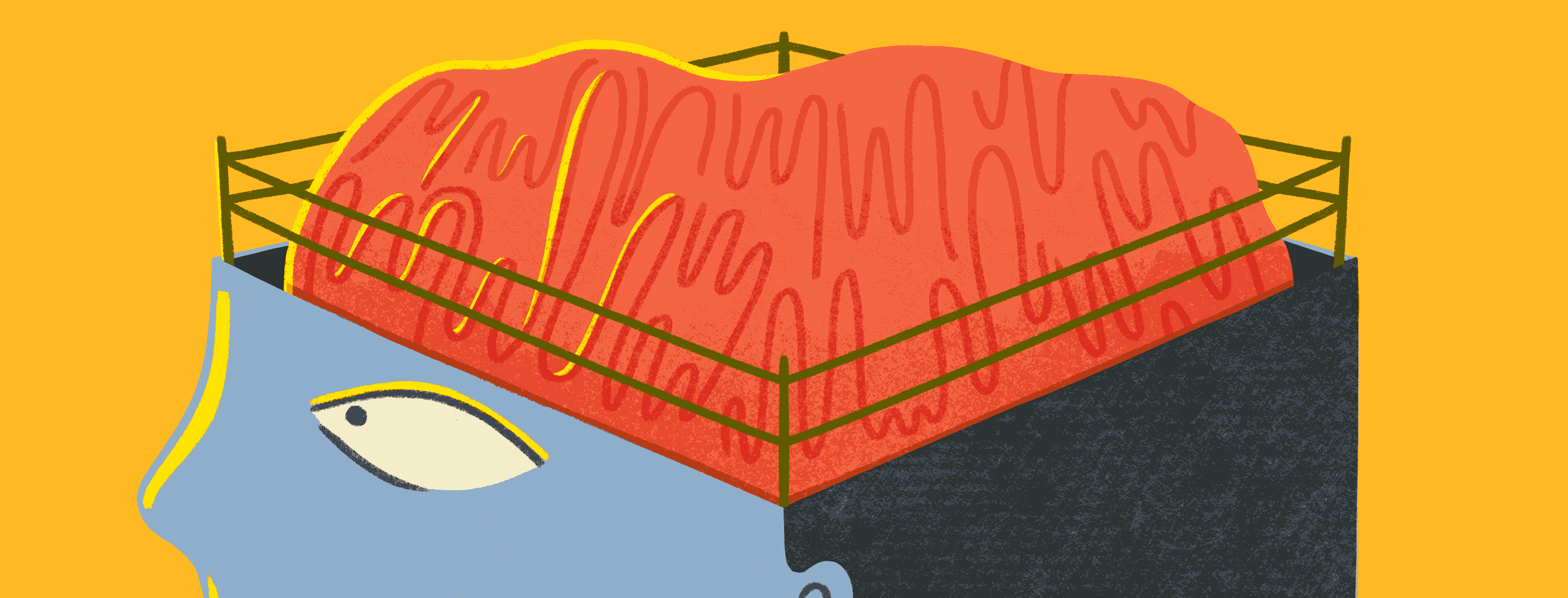Mania versus Hypomania
Mania and hypomania are hallmarks of bipolar disorder. These periods of erratic energy, activity, and mood shifts set bipolar disorder apart from depression.1,2
If you have bipolar disorder, you may relate to these energy extremes. Doctors call the "highs" of bipolar disorder mania. Hypomania is similar, but it is not as intense as mania.1,2
What are mania and hypomania?
Bipolar disorder causes highs and lows in mood and behavior. People with this condition cycle between mania, hypomania, and depression.1-3
During a manic phase, you may feel overly excited, anxious, or happy. You may decide to tackle big projects or make bad decisions. People often spend money, lie to family, or get in trouble. Episodes of hypomania can cause problems too. But they do not lead to major issues with the law, work, or school.1,2
It can be hard to tell mania apart from hypomania. But mental health experts look for a few specific things to distinguish them:2,3
- How long the episode lasts – Mania lasts for a week or more.
- Severity of mood swings and behaviors – Mania creates problems with daily life and relationships.
- Need for hospitalization – Mania may be so extreme that a person needs to be hospitalized.
Mania symptoms
Mania causes extreme or erratic behavior that disrupts your life. It interferes with work, school, and social situations. You may fail a class, get fired, or end up in jail or in debt.1
Symptoms of mania may include:1,3
- Increased energy
- Rapid speech or talkativeness
- Trouble sleeping
- Racing thoughts
- Being easily distracted
- Extreme focus on goals or projects
- Obsessive behaviors
- Psychomotor agitation
- Delusions or paranoia
- Hallucinations
- Impulsivity
With bipolar disorder, manic phases are a basic part of the disorder. They are not caused by drug use, health conditions, or other causes.1
Hypomania symptoms
A hypomanic phase is more mild than full-blown mania. You may feel more excited or motivated than usual. Some people show big changes in mood and activity levels.2
The key sign is that your energy level differs from your typical level. Those close to you may notice the changes or odd behaviors. But a hypomanic phase does not last as long as a manic phase. You do not have delusions, hallucinations, or other signs of psychosis.2
The most common symptoms of hypomania include:2
- Excessive energy
- Irritability
- Feeling extremely happy or excited
- Going without sleep but still feeling rested
- Inflated self-esteem
- Unrealistic ideas
- Talking more than usual
- Racing thoughts
- Being easily distracted or hyper-focused
- Pacing or fidgeting
A hypomanic episode can lead to bad decisions and regret. You may have unclear memories of what you did or feel very tired or depressed.2
Key differences
Both manic and hypomanic episodes can wreak havoc on your life. While mania disrupts your life in major ways, hypomania causes smaller disruptions.
Examples of manic behaviors include:1,3
- Going on a spending spree
- Having sex with strangers
- Gambling or taking drugs
- Calling in sick to work or school
- Making risky business decisions
- Getting into physical fights
With hypomania, you may act erratically, but you can still function. You may:2
- Stay up all night and not feel tired the next day
- Clean and purge your house suddenly
- Work on a project for 15 hours straight
- Call and text family and friends repeatedly
- Talk and shift between thoughts very quickly
- Come up with foolish ideas
Manic phases last for a week or more and sometimes require a hospital stay to resolve. They are more common in people with bipolar I disorder. Hypomanic phases usually last a few days. They can occur in people with either bipolar I or bipolar II disorder.1-3
Causes and triggers
Like bipolar disorder itself, the causes and triggers of manic episodes differ from person to person.
Some risk factors include:2,3
- Family history
- Chemical imbalances in the brain
- Side effects of medicines, alcohol, or drugs
- Major life changes such as a move or a loss
- Trauma, abuse, or neglect
- Money or housing problems
- High levels of stress and poor coping skills
- Lack of sleep or disrupted sleep
- Other mental health disorders
- Brain injury, tumor, stroke
Diagnosis and treatment
Being diagnosed with bipolar disorder takes time. It may take a while to notice your triggers and patterns related to the disorder.1-3
Ways you can recognize and deal with the onset of a manic episode include:2
- Ask trusted friends or family members for their input.
- Learn your triggers and recognize symptoms.
- Be more self-aware and commit to self-reflection.
- Ask yourself whether your activity level is extreme or out of character.
- Try to delay big decisions and purchases.
- Find a trained therapist to help you.
Some conditions, including hyperthyroidism, can mimic mania. You should discuss your symptoms, medicines, and any unusual behavior with your doctor.2
Treatment options include:2,3
- Psychotherapy
- Antipsychotic medicines
- Mood-stabilizing drugs
Self-care strategies that can also help balance mood include:2,3
- Staying on a regular sleep schedule
- Avoiding stimulants and alcohol
- Eating a healthy diet
- Getting regular exercise
- Learning to relax and manage stress
- Mindful activities such as yoga, meditation, and journaling
- Joining a support group
In general, it is important to keep to a regular routine and to take all medicine as your doctor prescribes.2,3
The good news is that bipolar disorder can be treated. Chaos does not have to be the norm. You can learn to be more mindful and be aware of triggers to reduce manic phases.
